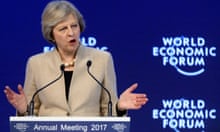Rising unemployment, inequality and a lack of decent jobs have helped fuel a rise in social unrest that threatens to intensify unless policymakers take swift action, the UN’s labour agency has warned.
The International Labour Organization said its measure of protest activities around the world had ticked higher in the last year against a backdrop of economic and political uncertainty. In a downbeat report into global labour market prospects, the agency also predicted migration could rise over the next decade as frustrated jobseekers leave their countries in search of better prospects.
After a year which involved anti-austerity protests in Brazil, demonstrations against the election of Donald Trump in the US and industrial action in the UK, the ILO said its tracking of global events showed the risk of social unrest or discontent had “heightened across almost all regions”.
Its social unrest index increased between 2015 and 2016 to above the long-term average for the last four decades, the agency said in its latest World Employment and Social Outlook.
“There is growing uncertainty everywhere it would seem, whether it’s economic or political. This is something we seem to be living with and they are reinforcing one another,” said Steven Tobin, ILO senior economist and lead author of the report.
He drew links between that febrile climate and the rise in protests. “The ability to protest is a good thing ... we should take some solace in the fact that people are able to demonstrate but it speaks to the notion that something is broken,” said Tobin.
“It speaks to discontent with the socioeconomic situation, with finding a quality job and being able to share in the gains of whatever limited prosperity there is.”
The warning comes a day after the World Economic Forum said income inequality and the polarisation of societies posed a risk to the global economy in 2017. Before its annual meeting in Davos next week, the WEF said the gap between wealthy and poor had been behind the UK’s Brexit vote and Donald Trump’s election victory in the US.
The ILO has also drawn links between inequality and those votes and it is predicting more discontent among workers this year. As economic growth continues to disappoint, global unemployment will rise by 3.4 million people this year, taking the jobless rate to 5.8% from 5.7% in 2016, it predicted. Small improvements across developing and developed countries would not be enough to offset deteriorating labour market conditions in emerging – or middle-income – countries, it said.
“The global picture, the reality is that the gains we have seen in advanced countries are slowing and no longer able to offset the problems elsewhere,” said Tobin.
For those who were in work, a large proportion would continue to suffer from economic insecurity, the ILO said. It predicted vulnerable forms of employment would remain above 42% of total employment in 2017, accounting for 1.4 billion people worldwide. Examples of such work include those working for themselves or in unpaid family work with little or no social protection.
The report also highlighted disparities between men and women in the world of work. For example, in northern Africa, women in the labour force were twice as likely as men to be unemployed in 2017. Vulnerable forms of employment were consistently higher for women across Africa, Asia and the Pacific and the Arab states.
Partly linked to rising discontent and a lack of decent work, there had been an increase in people’s willingness to migrate, the report noted. Between 2009 and 2016, the share of the working-age population willing to migrate abroad permanently increased in every region of the world except for south Asia, south-east Asia and the Pacific. “Over the coming decade, the number of international migrants may increase further,” the report added.
The ILO echoed central bankers and groups such as the International Monetary Fund in urging policymakers to stem the rise in unemployment by increasing state spending where possible and by addressing the root causes of the economic slowdown such as income inequality.
“A coordinated effort to provide fiscal stimulus – an increase in public investment – that takes into account each country’s fiscal space would provide an immediate jumpstart to the global economy,” it concluded.










